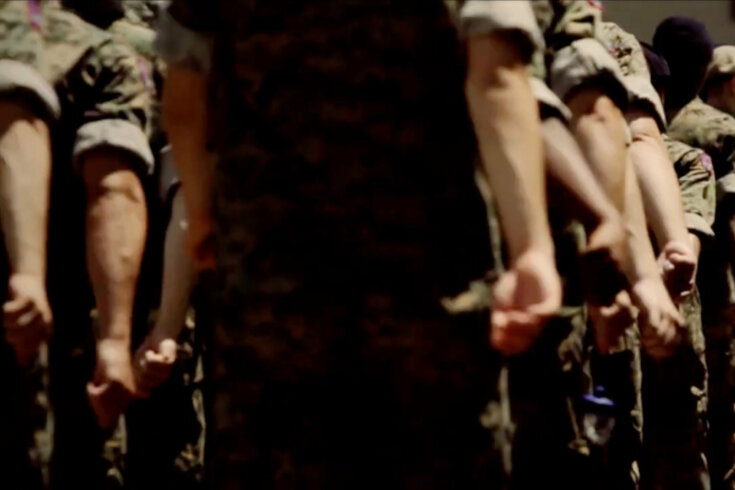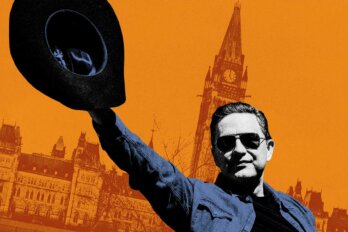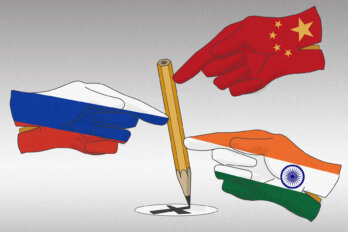L ast summer, The Walrus published an exclusive investigation by contributing writer Rachel Browne into allegations of physical and sexual abuse, humiliation, and degradation at a private, military-style boarding school in Southern Ontario. Robert Land Academy was founded in 1978 as an alternative to the public school system; for parents concerned about their child or teenager’s behavioural or mental health issues, the school had promises of reforming them into good citizens. The investigation sparked an outpouring of more allegations and more lawsuits being pursued against the school. Recently, Browne received documents relating to a new lawsuit that has been filed against the school.
I spoke with her about these new allegations and what they could mean for the future of Robert Land Academy.
After your feature came out in the summer, you received dozens and dozens of messages from former students, their parents, and former teachers. What stood out in all these messages?
In all my years of investigative reporting, I’ve never received this type of response to a story. I was getting messages on all of my social media platforms, emails, and phone calls from people who say they had experienced or witnessed all types of abuse at RLA. Many of them had never told anyone their stories before. The sheer volume and scope of messages from former students and staff going back to the 1990s all echoed each other and reinforced the findings of our initial investigation into the school. I just received an email last week from a former student who said he was placed into isolation for being gay. He, like so many others, says that his experiences at the school destroyed him psychologically and physically.
There was also a surge of new lawsuits against RLA.
In response to our first investigation in August, dozens of other people came forward. The Toronto lawyer whose firm is representing former students went from representing around a dozen clients allegedly harmed by RLA to having his caseload explode to more than fifty by the end of December. That’s an astonishing jump. And I continue to receive messages all the time from more students who are exploring legal action.
Last week, you received documents relating to a new lawsuit. Why does this new case appear significant to you?
I obtained a statement of claim filed in the Ontario Superior Court by a former student who’s seeking $3.5 million in damages from RLA for alleged abuses he says he experienced at the school in the 1990s. The person making the allegations is anonymous in the court documents. This case is separate from the other lawsuits we’ve reported on, and I’ve been really struck by the level of detail in the statement of claim. The alleged abuses experienced by this student at the time—physical, sexual, psychological—mirror those that I’ve heard about from so many other students, but the statement also provides an even deeper account of the horrors that he and other students were allegedly forced to endure during their time at the school.
This student alleges abuse by a specific former instructor as well as by a specific fellow student. This student also indicates how the school scared students against reporting any instances of abuse to their parents and caregivers. As we’ve reported before, abuses endured by young people often impact the rest of their lives. The student in this new lawsuit is no different. Though he’s in his forties now, he states that his experiences at RLA impacted his mental health, ability to enjoy his life, and maintain healthy and lasting relationships in adulthood.
You’ve reported on dozens of allegations, from former students and even a former teacher. One question we had was: How far up within the school did this go? What do these new allegations say?
In our first investigation, we didn’t really have verified allegations or many facts that pointed directly to the top or the responsibility of specific instructors and leadership at the school. This new lawsuit changes things and sheds light on alleged abuses perpetrated by Robert Land instructors at the very top of the school’s hierarchy. What this former student’s allegations point to is a deeply entrenched pattern of abuse that was not only tolerated by instructors but carried out by them, with seemingly no recourse for the students.
This former student first arrived at RLA in 1997, when he was twelve years old. He alleges that the abuse he experienced began on the day he arrived, with a student in charge yelling at him and hurling insults at him. The student and other new recruits were subjected to humiliating hazing rituals. The abuse escalated, according to the student’s claim, with one instructor, a Canadian Armed Forces veteran, forcibly grabbing the student’s neck and slamming him to the floor—all allegedly because the student didn’t look at the instructor when he was giving a speech. The same instructor proceeded to physically restrain the student, painfully twisting his arm behind his back. The student describes this restraint manoeuvre as “an overt act of domination, power, and control” over him, designed to “distress and humiliate him in front of [his] peers.” I found that line captures so much of what this student and so many others say they endured at the school. The student tried to report the instructor’s abuse and told a student in charge that he wanted to call the police. But the student was told not to take any action and that students’ mail was surveilled by Robert Land staff.
The student goes on to describe various forms of horrific sexual abuse, including what he describes as “sexualized pranks” carried out against him by other students. And, yet again, the student says the school and leadership knew all about it but did nothing.
The student also zeroes in on the school’s founder and long-time headmaster, Scott Bowman. In his statement of claim, the student recalls a particularly alarming moment when he was called into Bowman’s office to discuss the student’s alleged sexual abuse perpetrated by another student. Bowman and other senior leadership allegedly suggested to the student that he had consented to the “sexual contact.” The student writes that it was clear that Bowman and the other instructor did not see the student as a victim and did not believe that he had been abused. This is the first detailed allegation I have seen of top leadership covering up abuse and blaming the victims. This really hits home for me just how extensive and deep the culture of abuse has been at this institution.
How has the school responded to your reporting?
The school has been responsive whenever I’ve reached out to them for a response on our reporting and various accusations, but they don’t respond to specific allegations, citing privacy issues and the ongoing lawsuits. After our first investigation was published, the school sent out an email to alumni and donors, saying they were taking the allegations in our article seriously and that the allegations do not represent the school today.
In response to these new allegations, RLA issued this statement: “The safety and well-being of our students is our top priority and these alleged incidents that have been reported in the media do not reflect the values of the school, past or present. Upon learning of the alleged incident involving one of the school’s staff members, we immediately placed the individual on leave. Out of respect for the privacy of those involved and a fair and impartial process, we will not provide further comment as the legal investigation remains ongoing. We have also been cooperating with the Family and Children’s Services Niagara as they conduct their own investigation. We remain steadfast in our commitment to provide a safe environment for our students.”
Do you have a sense of the future of the school? In total, it must be facing tens of millions of dollars in lawsuits by now.
These lawsuits, if successful, would be ruinous to the school, and I just don’t see how it would be able to keep its doors open if any of these multi-million-dollar lawsuits are successful or if the parties settle. My understanding is that the volume of lawsuits continues to grow almost every month, so it will be interesting to see how long the school can handle such expensive and lengthy legal proceedings. There’s also the reputation of the school. If you look up Robert Land Academy now, our investigations are prominent, so any parent looking to send their child there would have to confront a long history of abuse allegations.
Many parents feel desperate to help their children who may be experiencing serious behavioural issues. RLA is an example of a school within the so-called “troubled teen industry.” What is the conversation now around these institutions that promise to reform your child?
In recent years, there’s been a lot of news coverage, documentaries, and advocacy raising awareness about rampant abuses that take place within that industry—which in the US and Canada is a multi-billion-dollar industry. And with high-profile survivors of these programs coming forward, like Paris Hilton, lawmakers are taking notice and, in the US especially, there’s been a successful push for laws that crack down on these places and attempt to hold them accountable for their programs and the safety of the children and youth in their care.
You have done some significant, very troubling investigations for The Walrus in the past couple years. Has this kind of reporting affected you personally? What do you keep top of mind while reporting on such sensitive subjects?
It’s a good question, and I think this journey of reporting on abuses within institutions, especially involving youth, has really opened my eyes to just how much abuse has occurred and continues to occur in these places that promise to improve lives. There are so many ways that vulnerable people can fall through the cracks when we don’t have proper reporting and accountability mechanisms in place. So it’s up to us as investigative reporters to keep listening to our sources and try our best to fill in these gaps to bring about awareness and, hopefully, change for the better.





